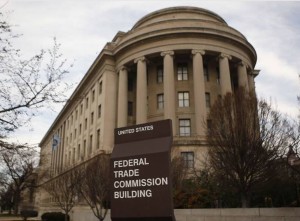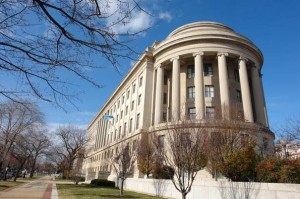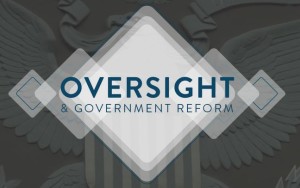- Homeopathic Medicines Will Carry Labels Saying They’re Unscientific (slate.com)
The Federal Trade Commission just cracked down on an unusual product that has long enjoyed exemption from regulation: homeopathic drugs. Available everywhere...homeopathic products are advertised as an effective way to treat a wide range of conditions...Americans spend over $3 billion a year on homeopathy, and the market appears to be growing steadily...companies selling these products have never been required to show they are effective at doing what they claim...the FTC announced its “enforcement policy statement” about homeopathic product labeling...the recommendations are pretty minimal...the agency produced a report that concluded customers were likely to be deceived by labels that did not carry the appropriate disclaimers, and therefore disclaimers stating that these products are untested will now be required. The requirement is not technically a law like…The rules require packaging to effectively communicate two key disclaimers:
- “There is no scientific evidence that the product works.”
- “The product’s claims are based only on theories of homeopathy from the 1700s that are not accepted by most modern medical experts.”
- Drug maker loses appeal of antitrust pay-to-delay case in Europe (statnews.com)
A European Commission court upheld an antitrust fine that was imposed three years ago against Lundbeck and four other drug makers for allegedly conspiring to delay the availability of a lower-cost generic version of an antidepressant...The ruling...came in response to an appeal of a 2013 decision that found Lundbeck and the generic drug makers pursued a pay-to-delay deal that violated European Union anticompetition regulations. The European Commission had fined the companies a total of $165 million with Lundbeck ordered to pay the bulk of the fine, or about $105 million...Regulators argue these deals are anticompetitive, force consumers to overpay for medicines, and escalate costs to the overall health care system. In the United States, the Federal Trade Commission estimates such deals cost Americans about $3.5 billion annually. Drug makers counter that the deals are not only legal, but allow lower-cost generic drugs to reach consumers faster than if patent litigation continued...
- FTC Sues Endo, Alleges Company Paid Off Generic Drugmakers (wsj.com)
The Federal Trade Commission said...it sued drugmaker Endo International PLC, alleging the company violated federal antitrust laws by paying hundreds of millions of dollars to delay generic competition against two of its biggest drugs...The suit...is the latest by the FTC to target alleged "pay-for-delay" agreements. In these deals, generic-drug companies typically agree to drop patent challenges against brand-name drugs and to refrain from launching cheaper knockoffs before a certain date in exchange for payments from the manufacturer of the brand-name drugs...The FTC contends such agreements cost consumers and taxpayers $3.5 billion annually by keeping drug prices higher than they would be otherwise...Suits like the one filed against Endo are relatively rare...These are very resource-intensive cases, and we don’t have the resources to bring that many cases," Markus Meier, FTC acting director for the bureau of competition...
- Mylan gets FTC’s OK for Perrigo deal (drugstorenews.com)Mylan not relying on acquisitions if Perrigo bid fails: chairman (reuters.com)
Mylan has cleared another hurdle in its ongoing attempt to acquire Perrigo, announcing Tuesday that the Federal Trade Commission had given the deal its OK, as long as Mylan divests itself of some products following the acquisition’s completion. With the completion of this step — and the recent U.S. court decision not to issue an injunction on behalf of Perrigo against Mylan — all Mylan needs is word from Perrigo’s shareholders on whether or not they will accept the company’s $27 billion acquisition offer…
- Senator urges FTC to step up investigation into maker of addiction treatment (statnews.com)
A US senator is urging the US Federal Trade Commission to accelerate its antitrust investigation into a drug maker that sells Suboxone (buprenorphine/naloxone), a medicine used to treat addiction to opioids and narcotics...The appeal by Senator Edward Markey comes less than a week after 35 states filed an antitrust lawsuit against Indivior (Reckitt Benckiser), accusing the company of engaging in a scheme to block generic competition. In doing so, the company "drove up prices and deprived states and consumers of lower costs," Markey wrote in his letter on Tuesday to FTC…Reckitt raised the price of its pill while lowering the price of the newer film version. And the patent on the new version does not expire until 2023. This is a pharmaceutical industry tactic known as forced switching, since patients and physicians have little choice but to consider a newer, higher-priced version...Markey also pointed out that the manufacturer has "significantly impeded the FTC investigation by attempting to deny the FTC access to thousands of pages of documents that are integral to the investigation." However, he also noted that the federal court overseeing the matter later ordered the company to produce the documents...So will the FTC step on the gas?
- Cephalon, U.S. states reach $125 million settlement over generic drugs (reuters.com)
Cephalon has reached a $125 million settlement with 48 states in connection with its alleged efforts to delay generic versions of its blockbuster sleep disorder drug Provigil from entering the market, New York Attorney General Eric Schneiderman said...The settlement...comes a little more than a year after the company struck a $1.2 billion parallel settlement with the Federal Trade Commission...The FTC accused the company of protecting its monopoly on Provigil by paying generic drug makers to drop their challenges to Cephalon's patent, in what is known as a "pay-for-delay" deal...the company successfully delayed generic competition of the drug by six years through filing patent infringement lawsuits and then settling them by paying competitions to delay selling generic versions of Provigil, Schneiderman said...When pharmaceutical companies put profits ahead of people by illegally restricting competition, it harms patients...
- Teva Said to Seek Fast EU Approval for Allergan Unit Bid (bloomberg.com)
Teva Pharmaceutical Industries Ltd. will try to win an early European Union approval for its takeover of Allergan Plc’s generics unit by making concessions to regulators this week...Teva and Allergan will meet a deadline to propose remedies aimed at allaying any EU antitrust concerns...If EU regulators are satisfied with the proposals, they could clear the transaction without an extended probe that can last about 90 working days. The companies plan to close the deal by the end of March...Teva’s $40.5 billion cash-and-stock bid for Allergan’s generics drugs business will make it the world’s largest maker of generic medicines, giving it greater negotiating power with governments and private-health insurers. Allergan will receive a $1 billion termination fee from Teva if the deal fails to close due to regulatory issues.
- Walgreens Will Divest Up To 1,000 Stores To Win Rite Aid Deal (forbes.com)
Walgreens Boots Alliance said U.S. antitrust regulators are requiring a divestiture of between 500 and 1,000 retail stores if its acquisition of Rite Aid will be approved...In the Walgreens-Rite Aid deal, it’s the Federal Trade Commission that is evaluating the transaction and demanding divestitures if the deal is going to win approval...Despite the large divestiture of stores, Walgreens expects the deal to still close in the second half of this year leaving the company with more than 11,700 U.S. stores. Walgreens has 8,200 U.S. stores and Rite Aid has 4,500. Even a divestiture of up to 1,000 stores would make Walgreens larger than CVS Health and its 9,600 pharmacies ...Walgreens chief executive officer Stefano Pessina has vowed to be a consolidator in a U.S. market he sees as facing more government control of pricing thanks in part to broader health coverage under the Affordable Care Act. The U.S. also has a growing population of aging baby boomers gaining Medicare coverage.
- Pharma Deals Reviewed at Much Higher Rates, BNA Study Finds (bloomberg.com)
Pharmaceuticals deals are being reviewed much more often than other mergers at the Federal Trade Commission, according to an analysis...from the FTC...Drug company acquisitions -- vilified as a key driver of price increases that hurt consumers -- were scrutinized twice as frequently as other mergers in 2013 and about four times more in 2014...they were reviewed at roughly three times the rate of other mergers in 2015. Most of the acquisitions ultimately won approval because the agency could assuage concerns with targeted asset sales...Pharmaceuticals is a narrow area with many sub-markets that each have a lot of consumer impact, prompting the frequent reviews. Any two companies are likely to have at least some overlap in an area that requires a more careful look than the boilerplate reporting information provides – including information about drugs in the pipeline that might compete in the near future...pharmaceutical industry has "experienced significant merger activity in recent years" and that the FTC ...continues to carefully review mergers between pharmaceutical manufacturers and require divestitures where necessary to maintain competition...The Commission is committed to enforcing the antitrust laws in pharmaceutical markets to promote competition and prevent conduct that is likely to harm consumer welfare...
- Feds tell judge Martin Shkreli can go to Washington to testify before Congress (statnews.com)
Martin Shkreli appears to be a big step closer to testifying before a congressional committee...US Department of Justice wrote a letter Sunday to a federal judge overseeing a securities fraud case against Shkreli to say “the government does not object to (Shkreli) traveling to Washington, D.C., to comply with the House Committee’s subpoena” to testify at a hearing on prescription drug pricing. As part of his $5 million bail order, Shkreli is prevented from traveling outside parts of New York City and nearby Long Island...The letter paves the way for Shkreli to appear before the House Oversight and Government Reform Committee, which wants to explore the rising cost of medicines. A hearing had been scheduled for Tuesday, but it has been postponed to Feb. 4 due to the recent blizzard.










